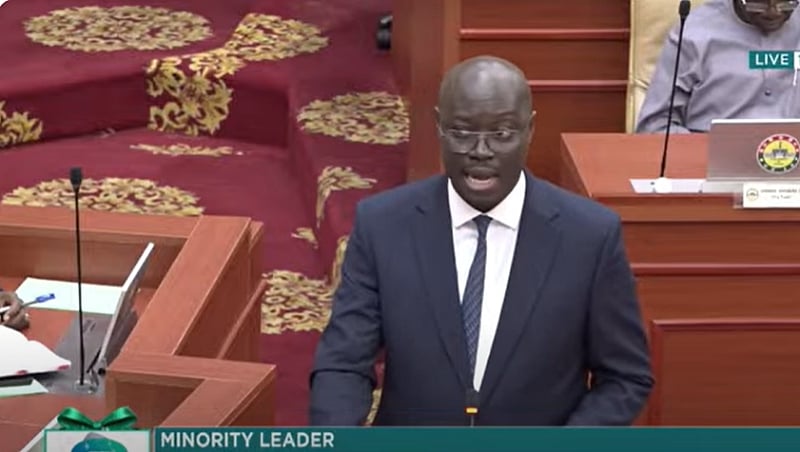Dr. Cassiel Ato Forson, Ghana’s newly appointed Finance Minister and former Minority Leader in Parliament, has reflected on his achievements during his two-year tenure leading the opposition National Democratic Congress (NDC) caucus. He emphasized the caucus’s commitment to providing robust alternatives to government policies, resulting in substantial savings for the nation. Furthermore, Dr. Forson highlighted the NDC’s pivotal role in advancing landmark legislation, including their championing of the Private Members’ Bill, which significantly impacted national policy. He urged his colleagues to prioritize national interests above all else, emphasizing good faith as the guiding principle for their parliamentary actions.
Dr. Forson’s tenure as Minority Leader was characterized by a proactive and vigilant approach to parliamentary oversight. The NDC caucus, under his leadership, meticulously scrutinized government policies, offering alternative proposals that often led to significant cost savings for the public purse. This involved rigorous analysis of budgetary allocations, proposed legislation, and government initiatives, ensuring that public funds were utilized judiciously and effectively. Their commitment to fiscal responsibility and transparency contributed to a more accountable and efficient governance process. Dr. Forson’s leadership fostered a culture of critical engagement within the NDC caucus, empowering members to challenge government policies constructively and offer viable alternatives.
Beyond fiscal oversight, the NDC caucus, steered by Dr. Forson, actively participated in shaping legislative agendas. Their championing of the Private Members’ Bill marked a significant milestone in Ghana’s parliamentary history. This initiative empowered individual members of parliament to introduce legislation, fostering a more inclusive and representative lawmaking process. The Private Members’ Bill expanded the scope of parliamentary debate and allowed for a broader range of perspectives to be considered in the formulation of national policies. This contributed to a more dynamic and responsive legislative framework, addressing critical issues that might otherwise have been overlooked.
Dr. Forson’s emphasis on national interest as the paramount guiding principle for parliamentary action underscores his commitment to serving the Ghanaian people. He stressed the importance of good faith in all parliamentary dealings, advocating for a collaborative and constructive approach to policymaking, irrespective of political affiliations. This principled stance fostered a more respectful and productive parliamentary environment, enabling legislators to engage in meaningful dialogue and reach consensus on critical national issues. Dr. Forson’s leadership style emphasized dialogue, negotiation, and compromise, promoting a spirit of cooperation across party lines.
The transition of Dr. Forson to the role of Finance Minister marks a significant shift in his political career. His experience as Minority Leader, where he demonstrated a deep understanding of fiscal policy and a commitment to responsible governance, has prepared him for the challenges of managing the nation’s finances. His emphasis on national interest and his track record of constructive engagement suggest a commitment to inclusive and transparent economic management. The skills and experience he honed during his time as Minority Leader will undoubtedly inform his approach to fiscal policy and economic development in his new capacity.
Mahama Ayariga, the Member of Parliament for Bawku Central, has now assumed the mantle of Minority Leader, succeeding Dr. Forson. He inherits a caucus that has been actively engaged in parliamentary proceedings, leaving a legacy of rigorous scrutiny and constructive engagement. Mr. Ayariga will be tasked with continuing this tradition of robust oversight, holding the government accountable and advocating for policies that benefit all Ghanaians. His leadership will be crucial in navigating the complex political landscape and ensuring that the NDC caucus continues to play a vital role in shaping national policy.


